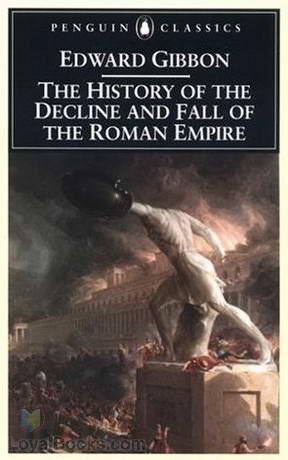History of the Decline and Fall of the Roman Empire, Vol. III |
|---|

Edward Gibbon's monumental work, History of the Decline and Fall of the Roman Empire, Vol. III, is a fascinating and in-depth examination of the downfall of one of the greatest empires in history. In this volume, Gibbon continues his detailed exploration of the various factors that contributed to the decline of the Roman Empire, including internal corruption, external invasions, and the rise of Christianity.
Gibbon's writing is incredibly detailed and well-researched, making this volume a valuable resource for anyone interested in understanding the complexities of Roman history. His prose is elegant and engaging, drawing the reader in with vivid descriptions and keen insights into the political, social, and cultural forces at play during this tumultuous time.
One of the most striking aspects of Gibbon's work is his ability to connect the past with the present, highlighting the timeless themes of power, corruption, and the fragility of empires. Through his meticulous research and thoughtful analysis, Gibbon provides readers with a comprehensive account of the decline and fall of the Roman Empire that remains relevant and thought-provoking to this day.
Overall, History of the Decline and Fall of the Roman Empire, Vol. III is a masterful piece of historical scholarship that sheds light on a pivotal period in human history. Gibbon's insights and observations are as relevant today as they were when he first penned them, making this volume essential reading for anyone interested in the rise and fall of civilizations. Book Description:
Proceeding at a brisk pace, the original fourteen volumes describe debauched emperors, corrupt practices, usurpers and murderers, bloody battles, plunder and loot, barbarian hordes, tumultuous events like the Crusades and invaders like Genghis Khan and many more. Later, it was condensed by various editors to make it available to more readers. Much of it seems like a modern battle epic or a gory scary movie with endless passages depicting power struggles, blood-drenched paths to the throne, ruthless killing of innocent women and children and the final disappearance of a mighty empire.
The Decline and Fall of the Roman Empire was written by an English historian who was inspired to write it when he undertook the Grand Tour and visited Rome as a young man in 1762. The book eventually took more than 20 years to complete and was received with both bouquets and brickbats. The Church banned it quite a few times as it was considered to have blasphemous passages about the Church. Gibbon was attacked by many devout Christians as a “paganist.”
Setting the starting point with the Emperor Augustus in 27 BC, Gibbon pursues the Romans relentlessly on to their final defeat in Constantinople in the 15th Century AD with the rise of the Turkish Ottomans. Stretching across North Africa, Europe and the Middle East as well as some parts of modern-day Asia, the Roman Empire was a tremendous human enterprise. Successively added to by emperor after emperor, it finally disintegrated and ceased being the “empire without end.”
Gibbon initially planned to write a history of the city of Rome but found himself so immersed in the subject that it gradually grew into a work about the empire itself. He provides interesting theories for the collapse of the Empire. The rise of Christianity, Islam and the attacks of various wild and brutal hordes contributed to the fall of this mighty Colossus.
Far from being dry and scholarly, Gibbon's style is detached yet lyrical. Full of ironic statements and opinions, the book appeals to historians and modern-day readers. There are interesting parallels to be drawn from present day world affairs and many lessons to be learned from this magnum opus.
|
| Book sections | ||
|---|---|---|
| Genres for this book |
|---|
| History |
| Non-fiction |
| Links related to this book |
|---|
| Wikipedia – Edward Gibbon |
| Wikipedia – History of the Decline and Fall of the Roman Empire |
| eBook Downloads | |
|---|---|
|
ePUB eBook • iBooks for iPhone and iPad • Nook • Sony Reader |
Kindle eBook • Mobi file format for Kindle |
|
Read eBook • Load eBook in browser |
Text File eBook • Computers • Windows • Mac |
| Review this book |
|---|